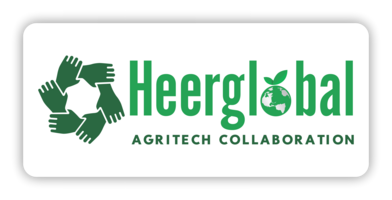Advantages and Challenges of Modern Farming Practices
Modern farming practices have evolved to make agriculture more efficient and sustainable, while also increasing productivity to meet the world’s growing food demands. As a farmer, it’s essential to understand both the benefits and challenges of adopting these new methods. In this article, we will explore the advantages and potential hurdles of modern farming practices to help you make informed decisions for your farm.
Advantages of Modern Farming Practices
Increased Productivity
Modern farming techniques, such as improved seeds and advanced machinery, can help you grow more crops in less space and time. This means higher yields and more produce to sell or feed your family.
Sustainability and Resource Efficiency
By using methods like drip irrigation and crop rotation, you can conserve water and maintain soil health. These sustainable practices ensure that your land remains productive for future generations.
Precision Agriculture
With the help of GPS and sensors, you can precisely apply fertilizers, pesticides, and water where they are needed most. This not only reduces waste but also saves you money on inputs.
Crop Diversification
Growing a variety of crops on your farm reduces the risk of total crop failure if one type is affected by pests or bad weather. It also means more choices for your customers and improved food security.
Improved Livestock Management
If you raise livestock, modern practices can help you breed healthier animals, manage their nutrition better, and monitor their health. This leads to better production and well-being of your animals.
Data-Driven Decision Making
Utilizing farm management software and real-time data allows you to make informed decisions about planting, harvesting, and resource allocation. This helps you become more efficient and profitable.
Challenges of Modern Farming Practices
Initial Investment Costs
Adopting modern farming methods may require investing in new equipment and technology, which can be expensive. It’s essential to plan and budget for these costs wisely.
Technological Complexity
New technologies may seem overwhelming, but with proper training and support, you can quickly learn to use them effectively.
Environmental Concerns
While modern practices aim to be eco-friendly, some intensive methods can still impact the environment. Balancing productivity with environmental stewardship is a challenge that requires careful management.
Risk of Genetic Uniformity
Relying on a limited number of genetically improved crop varieties can make your farm more vulnerable to pests and diseases. It’s crucial to maintain some diversity in your crops.
Data Privacy and Security
Using technology means handling data. Ensure your data is protected and used responsibly by choosing reliable and trustworthy partners or software.
Access and Adoption in Developing Regions
Not all modern farming practices may be suitable for every region. If you face limitations like poor infrastructure or lack of training, consider starting with simpler practices that work for your farm.
Conclusion
As a farmer, embracing modern farming practices can offer numerous benefits, such as increased productivity, better resource management, and improved decision-making. However, it’s vital to be aware of the challenges that come with adopting these methods. By carefully considering your farm’s needs, resources, and environmental impact, you can find a balance that maximizes the advantages while overcoming the hurdles. Stay informed, seek support, and remember that every farm is unique – finding the right mix of traditional wisdom and modern innovation can lead to a successful and sustainable future for your farm.




